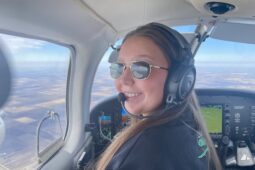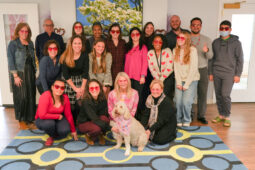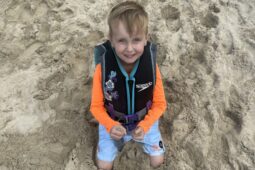Keeping Them on Their Toes: New Normal Is Anything But for Michelle
Michelle faces PASH syndrome diagnosis with the determination and support of her parents and NIAMS doctors
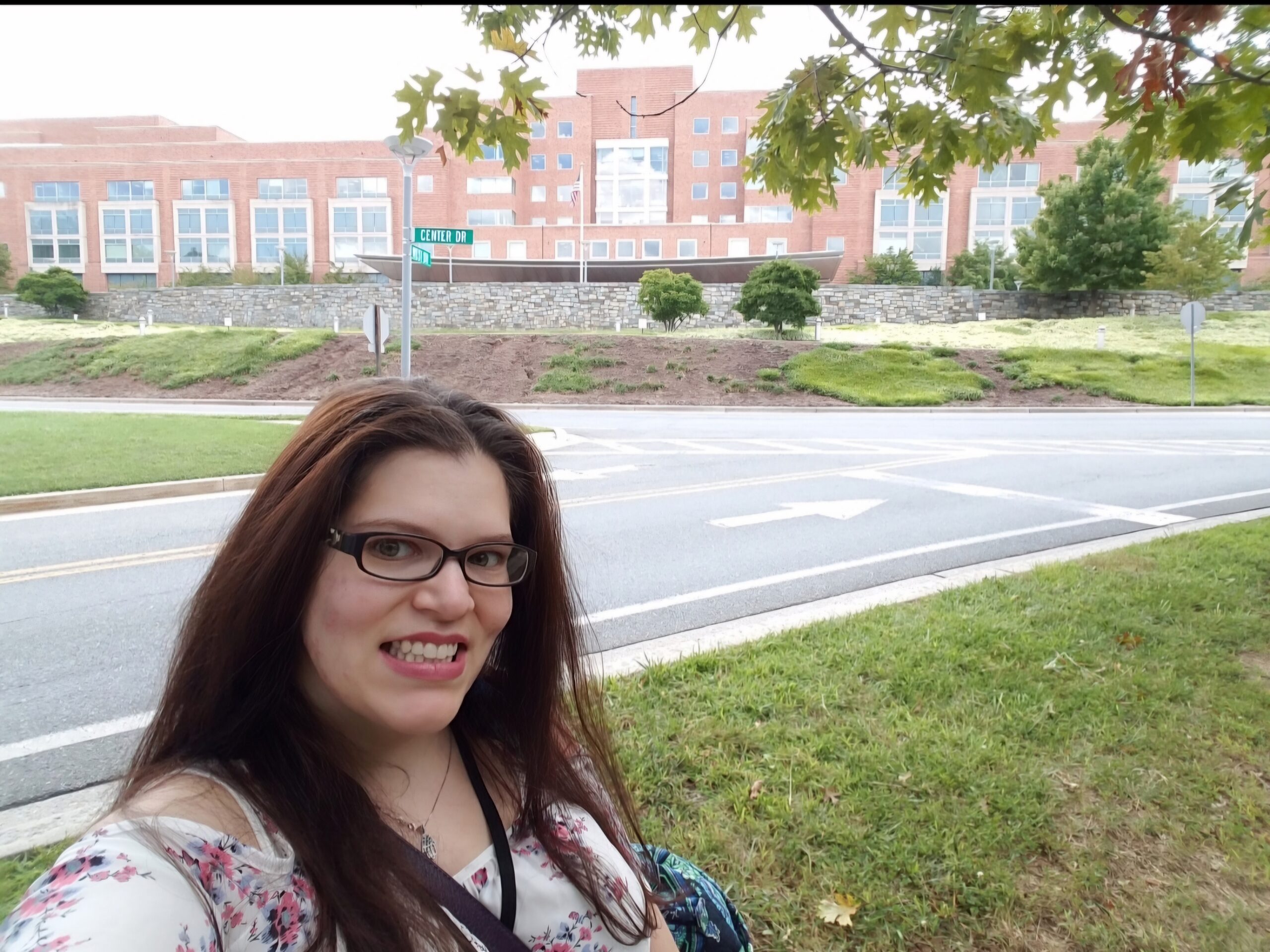
For the first 26 years of her life, Michelle thought she knew what normal meant. It was how she would describe her experience growing up on Long Island and living in greater New York City. Then, one day, everything changed.
“It was March 26, 2015,” Michelle recalled while sitting in the sunroom of The Children’s Inn at NIH. “I thought I got a mosquito bite. But overnight, it grew to four times the size and developed a large wound with a purple rim that got deeper and deeper. And they just kept appearing.”
It was not the first time Michelle had experienced an unusual skin condition. Back in 2009, when she first recognized some abnormalities on her skin, doctors were able to treat it, and she moved on. This time was different. This time, nothing could make the intense pain go away.
“I went to all the major hospitals in Manhattan,” Michelle explained, rattling off the names of several of the largest medical centers in the city. “No one knew what to do with me. Eventually, I thought about the TV show House. I realized that someone had to write that show and know what they were talking about, so I Googled the ‘Real Life Dr. House.’”
Her search led her to Columbia Presbyterian, where she was diagnosed with PASH syndrome, an autoinflammatory syndrome that can result in the painful skin conditions Michelle was experiencing. PASH syndrome had only been discovered in 2012, three years before the “mosquito bite” and three years after the first issues flared up for Michelle. It is usually an autoinflammatory disease, which stems from problems with a patient’s immune system. That was not the case with Michelle. “I like to keep people on their toes,” she joked.
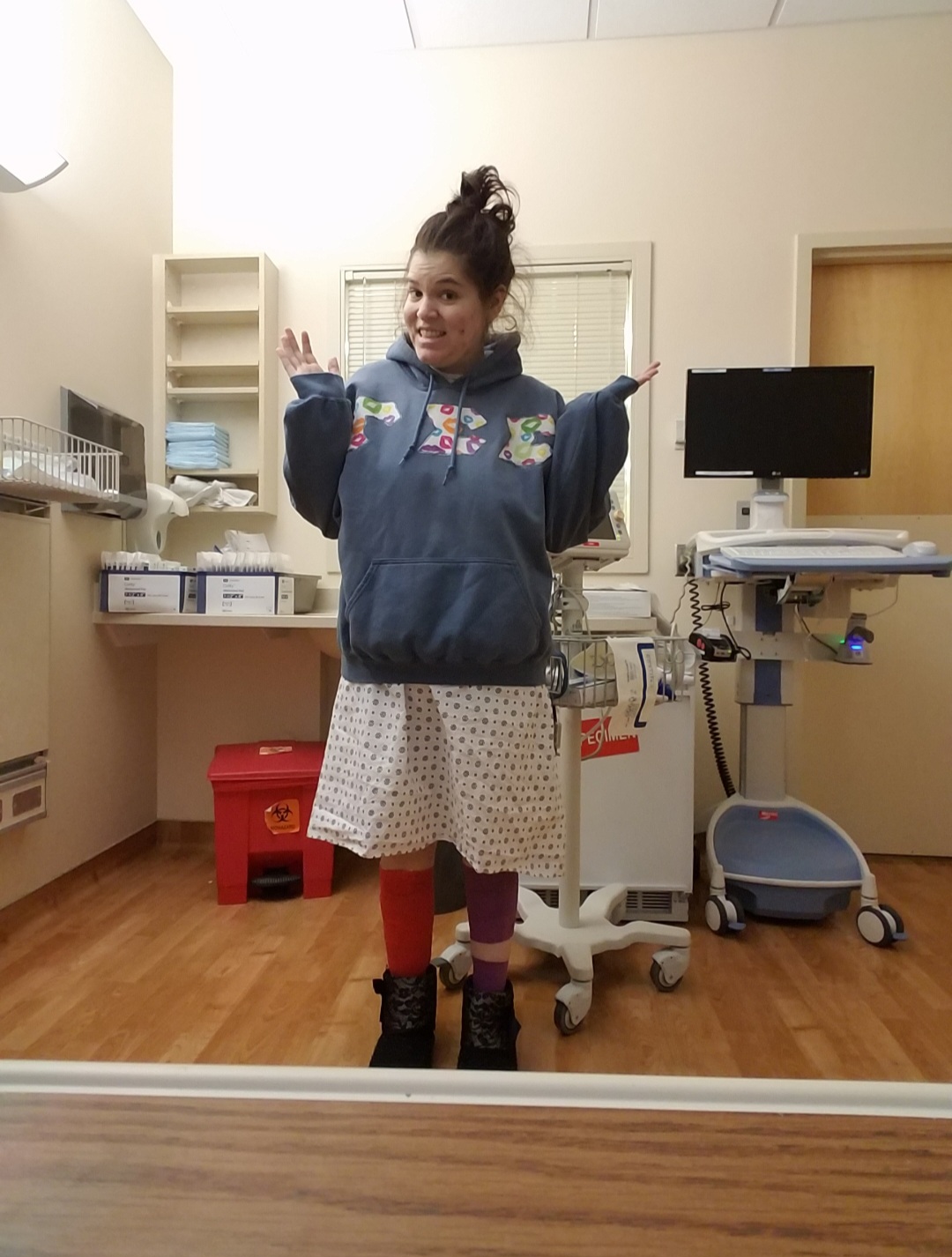
Through Columbia Presbyterian, she met a doctor whose private practice on Long Island was convenient for her. He put her in touch with Dr. Edward Cowen, who ultimately set her up with a study at the National Human Genome Research Institute (NHGRI). Michelle was admitted into a study in the Rheumatology Department for people with skin conditions and gene variants.
She was admitted to the NIH in January 2017 and was at the Clinical Center for a month while doctors tried a variety of injections and combinations of drugs. Eventually, they found a combination of injections that successfully healed Michelle’s skin.
From 2017 to 2019, Michelle visited her doctors at the NIH several times, always staying at The Children’s Inn. Despite already approaching the maximum age by that point, she loved her stays at The Inn.
“I loved it,” she smiled. “My dream is to be a child life specialist, so being around other children made me so happy. At one point, I called The Inn ‘Disney World for people with rare diseases.’”
Michelle’s is one of only about 100 known cases of PASH syndrome in the world. The newness of medical knowledge of the syndrome – Michelle joked that had doctors recognized what they were dealing with back in 2009, PASH syndrome may have been named after her – had the potential to leave her feeling completely isolated from the world.
When she started coming to The Inn, though, she realized that was not something she needed to worry about. Her stays there put her in touch with a community of families who knew what she was going through, even if they did not suffer the same maladies. “I met so many people with rare conditions,” Michelle said. “They were not the same but just as rare as mine. They understand me. They understand what it’s like to be one in a million. And some of their parents are my age, so I made some friends.”
Her visit in 2019 would prove to be her last as the COVID-19 pandemic postponed her next visit to Bethesda until after she had aged out of The Inn. She was sad to leave, calling herself “a kid at heart.”
More than anything, the support of her parents, Barbara and Herb, got her through the unimaginable challenges she continues to face in the fight against PASH syndrome. “My parents are my rocks,” she smiled. They accompanied her on her early visits to The Inn. They also were invaluable in helping her live her life at home, finding ways to keep her clean when a simple bath or shower left her in excruciating pain due to the open wounds. They also aided in treating those wounds, a process that could take three hours to safely complete.
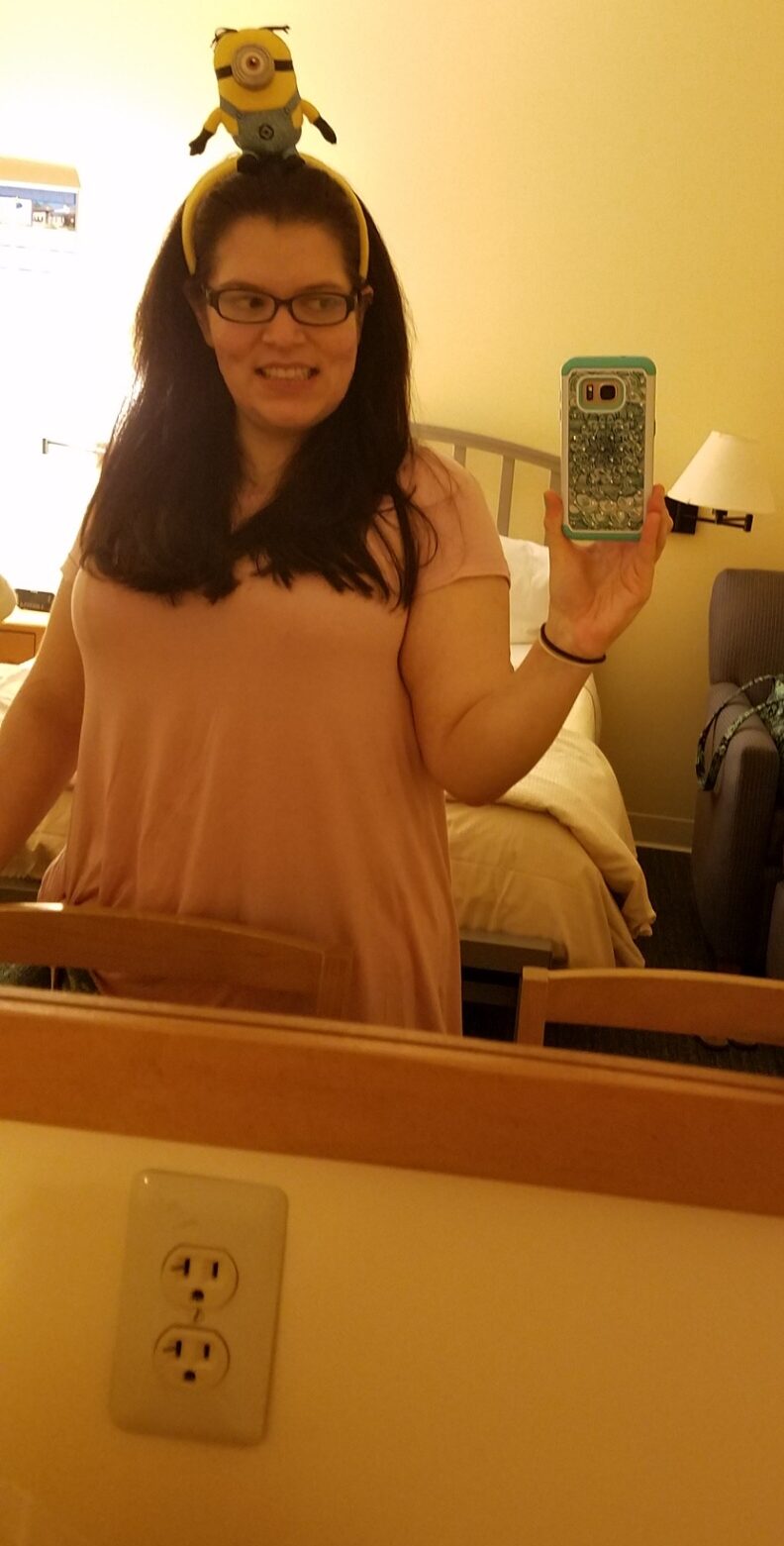
Her first trip back to NIH since 2019 came in April 2024, when she was back for bloodwork and an evaluation of her medication. At the height of the pandemic, Michelle suffered a hemorrhage in her pituitary stalk. Doctors remained unsure of the cause but felt it could have been a side effect of one of her medications. As a result of the hemorrhage, she developed several diseases, including diabetes insipidus. Her metabolism and hormones stopped working properly, which led to weight gain, a problem exacerbated by the fatigue she often feels after the grueling routine of up to three injections a day.
The last decade of Michelle’s life has been anything but normal. In fact, she says the word “normal” has lost all meaning for her. But “normal” isn’t the goal anymore. Michelle wants to stand out and find ways to help. Her time at The Inn helped her recognize that even if she wasn’t “normal,” she still had a community to rally around. She remains in touch with several of the families, volunteers, and staff she met during her stays at The Inn and was happy to tour the place during her recent visit when she stayed at the Safra Family Lodge.
There are still many questions to be answered about PASH syndrome and her case in particular, but Michelle is ready for the challenge. With her parents’ support, her doctors’ care, and the perspective she gained at The Children’s Inn, she is ready to find a way to live her passion in life, no matter how unique that life may be.

